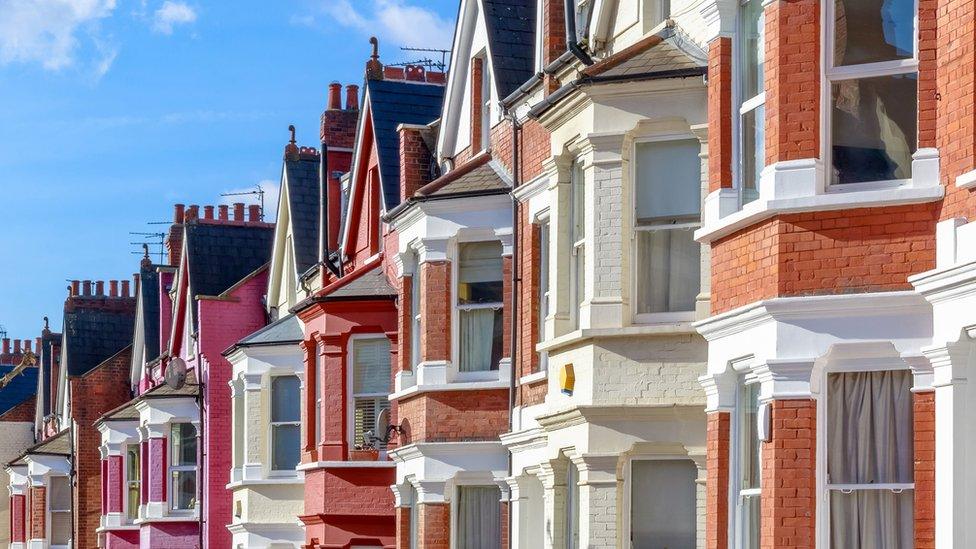'You shouldn't be scared to breathe in the air'
- Published
Living with damp and mould: "It's really worrying"
The death of a toddler that was caused by his exposure to mould has led to a sharpened focus on those whose job it is to ensure people have habitable homes.
In Awaab Ishak's case, a coroner found a housing association had failed to act to prevent the two-year-old's death, from a respiratory condition. While no other coroner has reached such a conclusion, instances of health problems being connected to mould are not uncommon.
The BBC visited a flat block in Hendon, north London, to speak to residents who say their lives are being affected by this issue.

Walking through the communal entrance to Rockfield House, you're hit by the stale smell of must.
The hallway walls on every one of this flat block's three floors are wet to the touch and all the residents the BBC spoke to said they were worried about the health implications of damp and mould.
According to Barnet Homes, the housing association responsible for Rockfield House, when a new tenant moves in here, checks are made on the doors and windows. Gas and electrical testing is also done, it says, and inspectors look for any signs of dampness.
Nonetheless, residents complain that the building has longstanding water damage, with internal leaks causing damp and mould. Some say they are scared to live here.
'Getting sicker by the day'
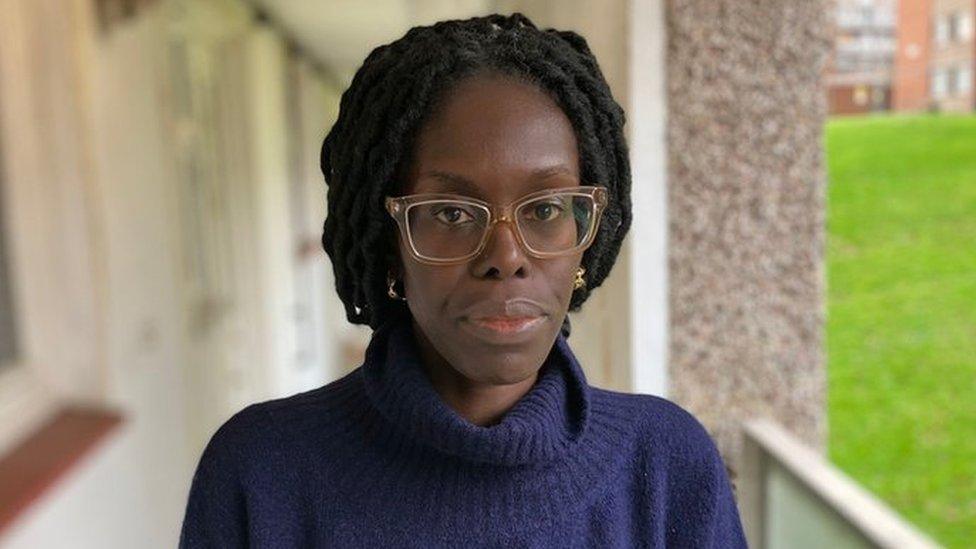
Helena questions why "people have to live like this"
One resident, Helena, told the BBC: "You're within your rights not to live in a place where you're scared to breathe in the air.
"There is historic water damage in this block - there is so much evidence to show it.
"Most of the people you speak to on this estate will tell you that, categorically, there's damp in their property."
She explained that when residents have complained, they were often told the problem was due to a neighbour - for instance someone living above experiencing a leak of some sort. The walls are then cleaned and repainted, Helena says, but the cause of the damp and mould remains unaddressed.
"It's getting to the point where you're so frustrated to even deal with the council that you just leave it. When it rains, you can see that it's actually seeping into the building.
"You've got to live with it. You're getting sicker by the day. It's very sad that you know a young boy had to die for this to come to the forefront, and more people are going to die.
"Why should people have to live like this? They still have to pay their council tax, they still have to pay their rates - and yet we're forced to stay in one room."
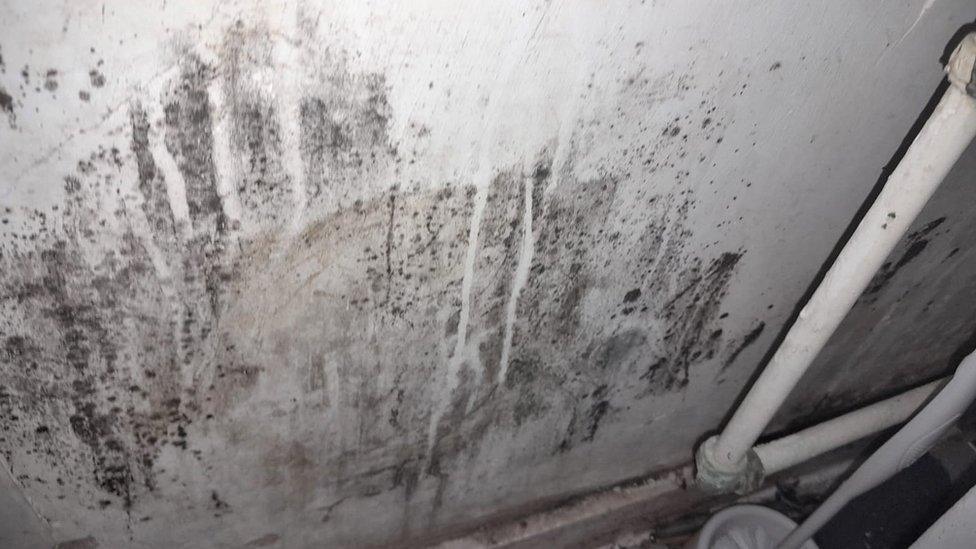
This photograph was taken by a neighbour of Helena's who had to move out while her flat was made habitable
Barnet Council said it had reviewed the maintenance records for the 1960s-built flat block, which showed there had been reports of damp-related issues in eight out of 42 flats in the past two years.
Barnet Homes, which is run by the council, said there had been "some" cases of leaks between flats, which it said was "normal" in a block of Rockfield House's size and age. It added that it was not aware of any "significant" ongoing leaks.
'We shouldn't have to go through this'
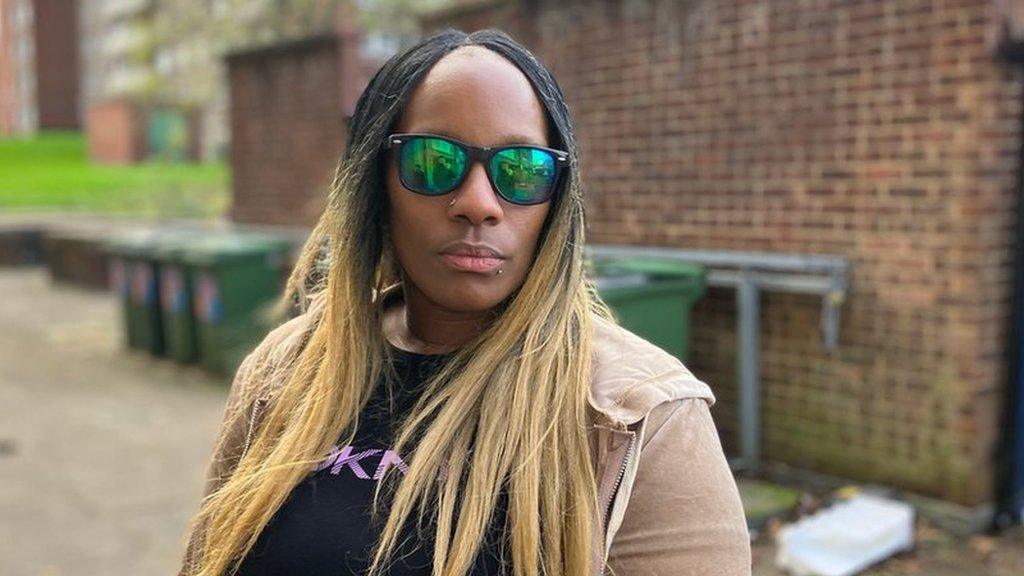
Monique Staff has recently been moved out of her flat
Helena's neighbour Monique Staff, who has severe asthma and four school-age children, has recently been moved out of her flat. She has been staying in a hotel for the past couple of weeks, funded by the council, while her home is refurbished.
She showed the BBC photographs of her mould-ravaged flat and a video of a caved-in ceiling, with rotten wood visible and rubble in the hallway. Monique explained that she had tried everything to get rehoused over the past few years, but said "it took the news of Awaab" before she was finally listened to.
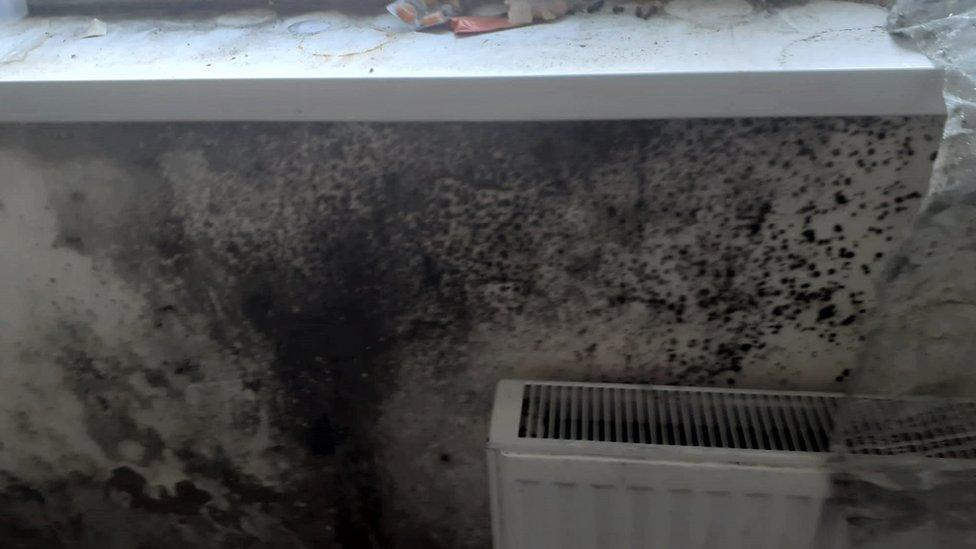
Older properties are often poorly insulated and therefore more prone to condensation issues - this photograph was taken in Monique's flat before she moved out
"It's been a nightmare," she said. "I had my [electrical] plugs blowing because of the moisture on the walls; the teachers at my children's school raised concern at the smell of mould on their clothes.
"My asthma has got so much worse living here - I can't breathe - and this is not somewhere my children can live a healthy life. We shouldn't have to go through this."

How can mould affect your health?
People living in homes with mould are more likely to suffer from respiratory illnesses, infections, allergies or asthma
Mould can emit spores, cells, fragments and "volatile organic compounds" into the air
Inhaling or touching these spores can cause an allergic reaction, leading to sneezing, a runny nose, red eyes and skin rashes
Mould can also trigger asthma attacks and cause coughing, wheezing and breathlessness
Those more at risk include the elderly and young children, people with existing respiratory illnesses and those with certain skin problems
Mould can be more dangerous for people with a weakened immune system, either due to illness or because of the medication they are taking
Source: Dr Andy Whittamore, clinical leader at Asthma & Lung UK, external

'I'm not sure what to do'
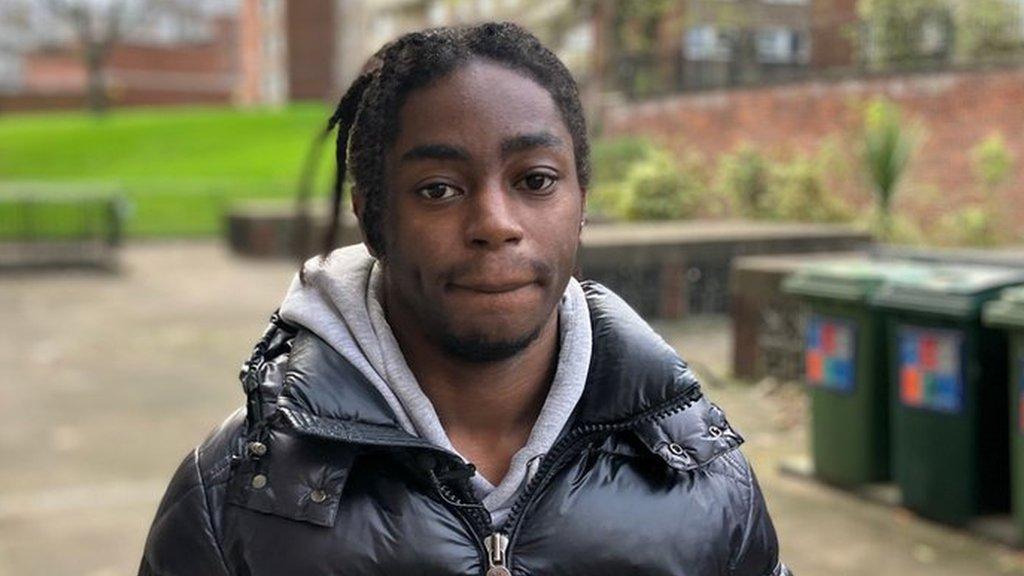
Jordan Miller moved in five months ago and is already seeing signs of mould in his flat
Jordan Miller moved into Rockfield House five months ago.
His walls are a freshly painted pristine white but the 20-year-old said that, despite keeping his windows open, he was "seeing mould come out through the corners of the walls".
"I try to clean it but I'm not sure what to do, to be honest," Jordan said.
"It's really worrying. I thought this would be my permanent home but I don't know if that's safe now."
A Barnet Homes spokesperson said: "We will contact our tenants at Rockfield House to listen to their concerns and understand if they have any current issues with their homes that we can assist with."
"Barnet are aware that some of our residents are affected by damp and mould in their homes. We visit every home where residents report any damp or mould to us, and we take action as appropriate to deal with any issues as they arise. For example, we are currently on site in one property carrying out remedial works, due to be completed this week.
"We are also well progressed in surveying all of our homes, having completed surveys to 80% of them to date, and we are developing programmes to tackle damp and mould where it exists across our stock."

Follow BBC London on Facebook, external, Twitter , externaland Instagram, external. Send your story ideas to hellobbclondon@bbc.co.uk, external
- Published13 February
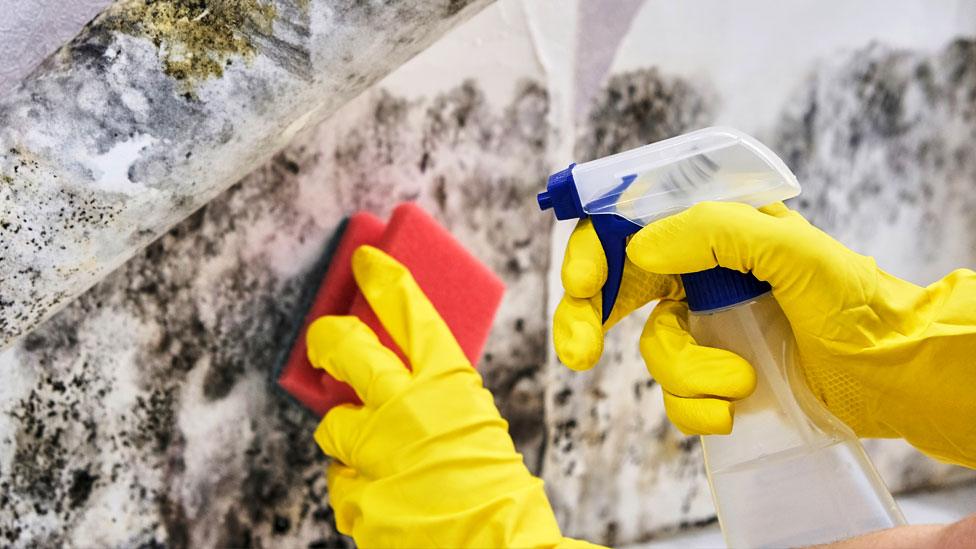
- Published15 November 2022

- Published9 December 2022
